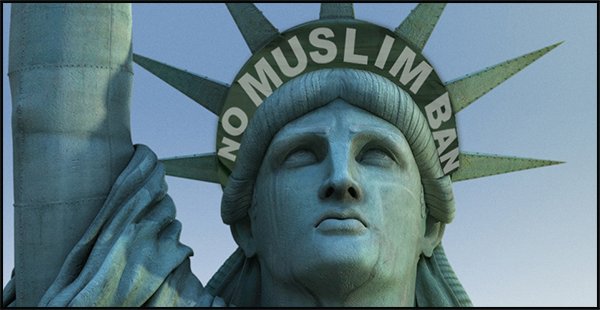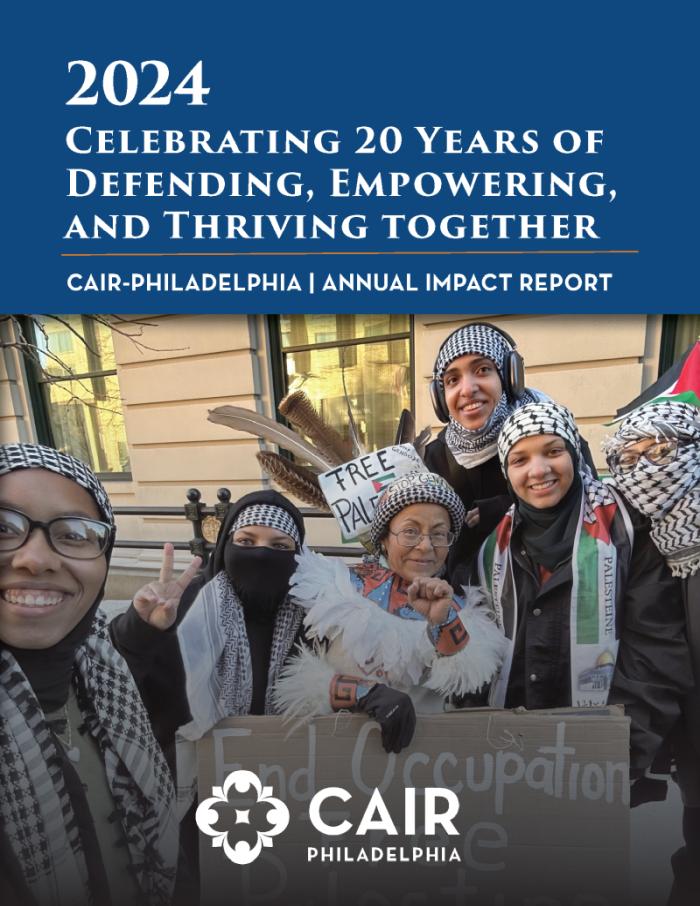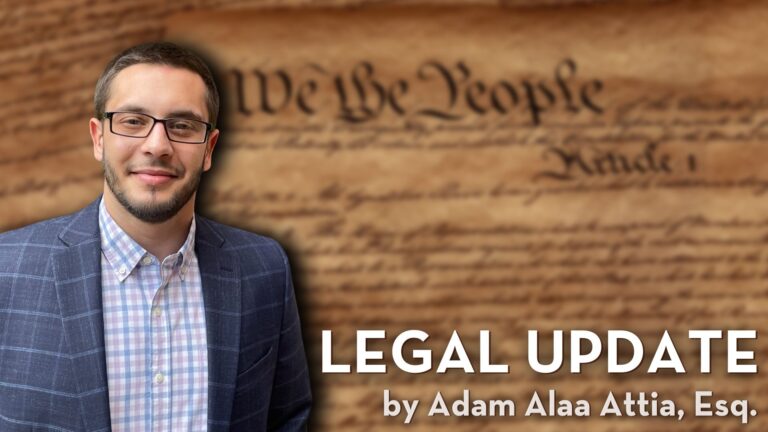Updated 6/27/18
DOWNLOAD PDF
Information in: Arabic | Farsi | Urdu | Somali
*This advisory is prepared by our colleagues at CAIR SF Bay Area and Advancing Justice-Asian Law Caucus.
On June 26, 2018 the Supreme Court issued a 5-4 decision in support of Trump’s bigoted Muslim Ban. This is bad but we will keep fighting. It’s more important than ever to know your rights despite this decision. Since December 4, 2017, the Muslim Ban has been in full effect for certain individuals from: Iran, Libya, North Korea, Somalia, Syria, Venezuela, and Yemen. All are facing difficulty in their applications for visas to be united with family, study in the U.S., get medical treatment, or visit for tourism.
In this advisory we cover the current status of the Muslim Ban, who is impacted, as well as information about the so-called waiver process. Please note that this information is subject to change based on the various legal challenges. We will update you should changes happen.
Timing
The Supreme Court allowed Muslim Ban 3.0 to go into effect on December 4, 2017. On June 26, 2018 the Supreme Court issued a decision allowing the Muslim Ban to remain in effect.
Who Is Impacted?
Certain nationals of seven countries – Iran, Libya, North Korea, Somalia, Syria, Venezuela, and Yemen.
Muslim Ban 3.0 only applies to individuals who are:
- Outside of the U.S. on the effective date,
- Who did not have a valid visa on that date, and
- Who have not obtained a waiver (discussed below).
Muslim Ban 3.0 Does NOT Apply To:
- U.S. Lawful permanent residents (green card holders);
- People admitted or paroled into the U.S. on or after the effective date of the new Muslim Ban;
- People with a document other than a visa that allows them to travel to the U.S., if the document is dated on or after the effective date of the new Muslim Ban;
- Dual-nationals traveling on a passport from a non-designated country;
- People who have been granted asylum by the U.S.;
- Refugees already admitted to the U.S.; or
- Individuals granted withholding of removal, advance parole, or protection under the Convention against Torture.
Unlike past decisions, this decision does NOT allow for an exception for “Bona Fide Relationships” (i.e. close family ties such as a parent, spouse, child, sister, brother, fiancé(e), etc.)
Details on Impacted Countries
Iran
- All immigrant and nonimmigrant visas are suspended for Iranian nationals except for those with F, J, or M visas.
- Those with F, J, or M visas will most likely be subject to heightened screening.
Libya
- All immigrants and nonimmigrant visas, including business (B-1), tourist (B-2), business/tourist (B-1/B-2) visas are suspended for Libyan nationals.
Somalia
- All immigrant visas are suspended for Somali nationals.
- Non-immigrant visas are permitted, subjected to heightened screening.
Syria
- All immigrant and nonimmigrant visas for for Syrian nationals are suspended.
Yemen
- All immigrant and nonimmigrant visas, including business (B-1), tourist (B-2), and business/tourist (B-1/B-2) visas are suspended for Yemeni nationals.
North Korea
- All immigrant and nonimmigrant visas are suspended for North Korean nationals
Venezuela
- Visa issuance for officials of government agencies of Venezuela involved in screening and vetting procedures and their immediate family members, as nonimmigrants on business (B-1), tourist (B-2), and business/tourist (B-1/B-2) visas, is suspended. Additionally, nationals of Venezuela who are visa holders are subject to heightened screening.
- Venezuelans traveling on diplomatic visas are not affected by this order.
Waivers Seeking an Exception to Muslim Ban 3.0
A “waiver” is permission to obtain a U.S. visa, even though the Muslim Ban says you are not eligible to get one. Muslim Ban 3.0 states that banned individuals can ask for a waiver to request an exception that would allow the visa to be issued as long as they can show that:
- Denying entry would cause the visa applicant undue hardship;
- Entry to the U.S. would not pose a threat to the national security or public safety of the U.S.; and
- Entry would be in the national interest of the U.S.
The law states that a consular officer or Customs and Border Protection official has the authority to grant a waiver on a case-by-case-basis. The law also lists several examples where a waiver can be granted (such as needing urgent medical care, reuniting with immediate family members in the U.S., business ties etc.).
Unfortunately the waiver process has been very unclear and applied unevenly. The government has provided very little guidance on the waiver process. Here are some trends we have seen:
There is no formal process to request a waiver. There is no available form online to fill out. Any documents submitted to the consulate outlining why you qualify for a waiver may or may not be accepted.
Many consulates have been notifying individuals that either:
- The consulate is denying the waiver for their case, stating that the visa is “refused under 212(f)”:
In this case, there is no appeal process for the decision. Many individuals are submitting waiver requests, however, it is unclear if they are being accepted. - The consulate is considering their case for a waiver:
In this case, the consulate may or may not ask you about the above criteria in the interview; the consulate may or may not accept a written letter outlining why you meet the above criteria either during your interview or if you try to email/mail it in; the consulate may or may not refer your case to Washington D.C.
If you have an upcoming interview before a consulate please seek legal advice about the waiver process.
As of May 15, 2018, 655 waivers have been confirmed to have been granted since the Ban went into effect. At this point it is very unclear how these cases will be processed and what the next step is until the government issues more guidance. Information around waivers can change very quickly, so seek legal help (while watching out for scams) and please check back frequently.
How to Get Legal Help
While CAIR-Philadelphia does not have the bandwidth to provide legal help in immigration related cases (we cover civil rights and religious discrimination cases free of charge), please contact our office if you have a pressing concern and do not have access to an immigration lawyer.





